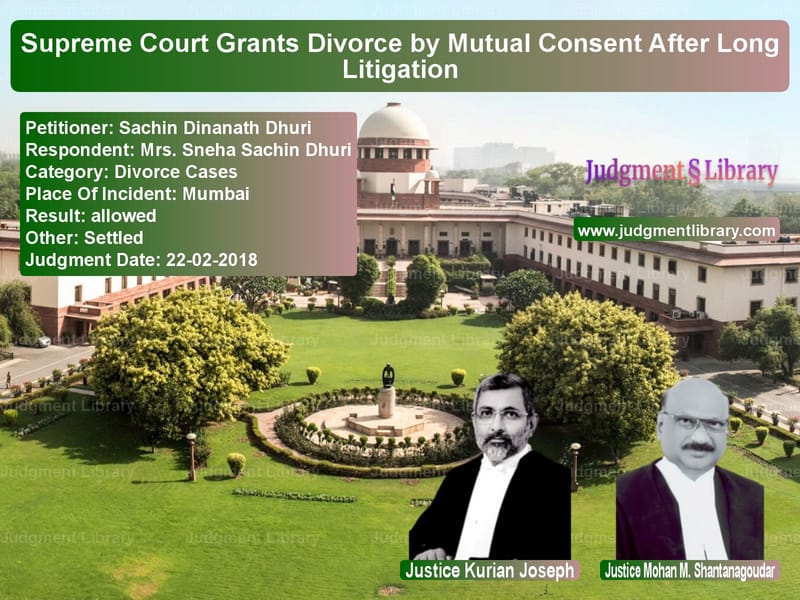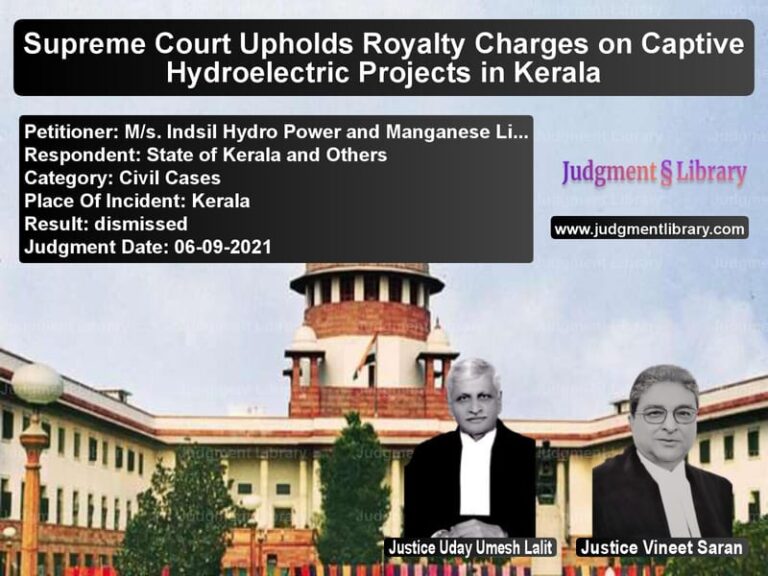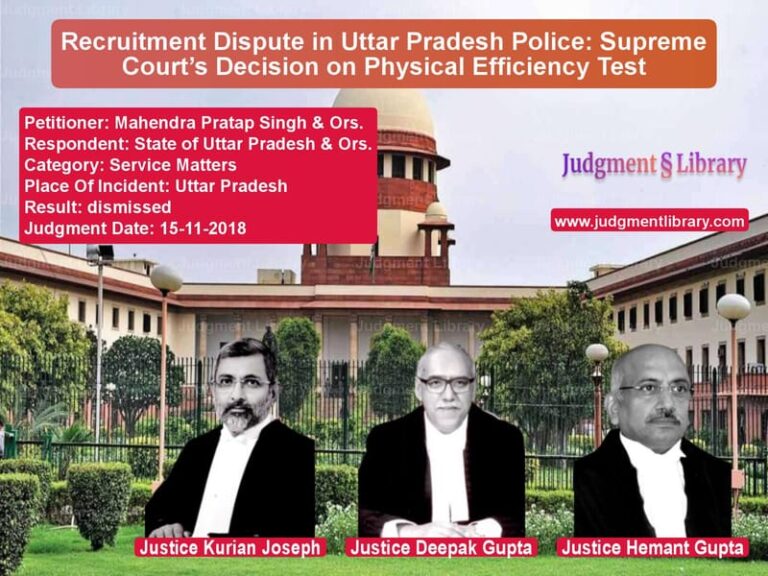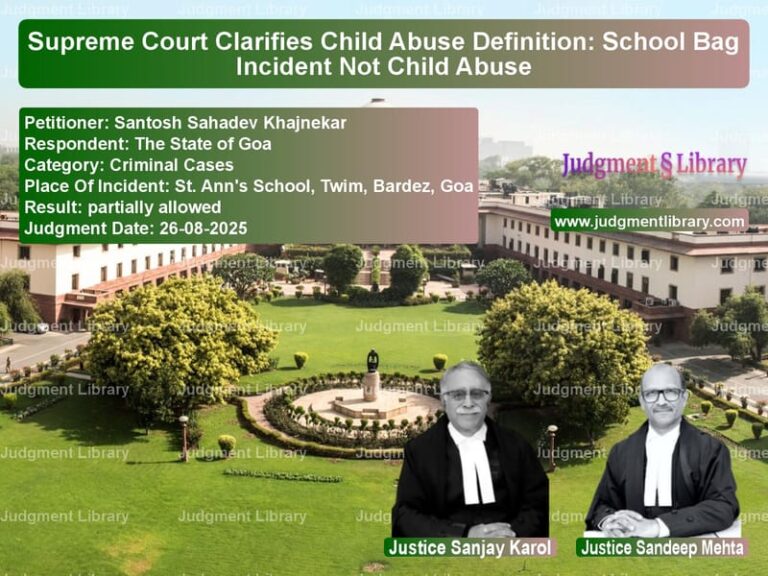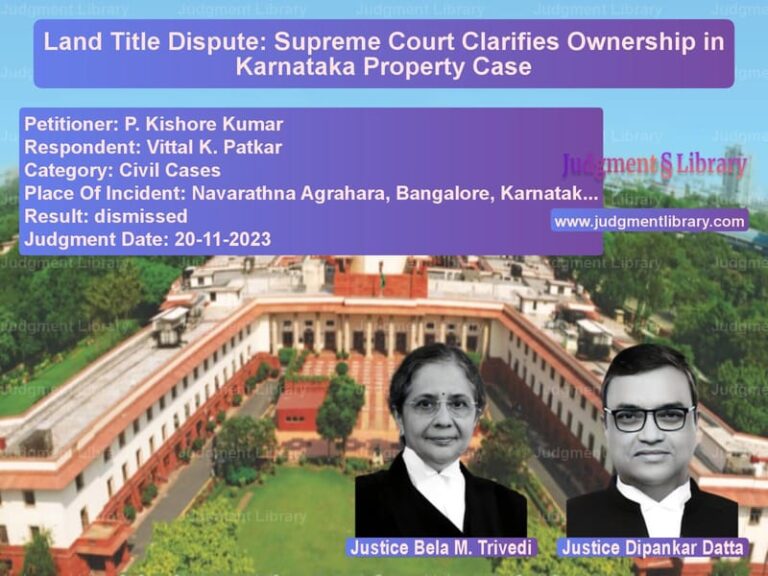Supreme Court Grants Divorce by Mutual Consent After Long Litigation
The Supreme Court of India, in its judgment in Sachin Dinanath Dhuri vs. Mrs. Sneha Sachin Dhuri, addressed a long-standing matrimonial dispute. The case involved a contested divorce that had been under litigation for over a decade. The Court intervened to facilitate a peaceful resolution between the parties, ultimately granting a divorce by mutual consent under Section 13B of the Hindu Marriage Act, 1955.
Background of the Case
The appellant, Sachin Dinanath Dhuri, and the respondent, Sneha Sachin Dhuri, had been married for several years. However, due to marital discord, they had been living separately for more than 20 years. The litigation had spanned over a decade, with multiple cases pending between them.
The parties had initially attempted mediation at the suggestion of the Supreme Court, but the efforts failed. Eventually, after further intervention, a settlement was reached, leading to an agreement to dissolve the marriage amicably.
Legal Issues
- Whether the long period of separation justified a divorce.
- Whether mutual consent divorce could be granted despite initial litigation.
- Whether pending civil and criminal litigations should be quashed as part of the settlement.
Petitioner’s (Sachin Dinanath Dhuri) Arguments
- The marriage had broken down irretrievably, and there was no possibility of reconciliation.
- The couple had been living separately for over 20 years, making the continuation of the marriage impractical.
- Multiple litigations had caused emotional and financial distress to both parties.
- The best solution was to amicably settle the disputes and move forward.
Respondent’s (Mrs. Sneha Sachin Dhuri) Arguments
- Initially opposed the divorce, hoping for a resolution.
- After legal intervention and mediation, agreed to settle the dispute.
- Consent terms were reached to end all ongoing litigations.
- Agreed to co-parent their son and ensure his well-being.
Supreme Court’s Observations
The Supreme Court, comprising Justice Kurian Joseph and Justice Mohan M. Shantanagoudar, made the following key observations:
1. Irretrievable Breakdown of Marriage
The Court ruled that since the couple had been separated for more than two decades, reconciliation was not feasible. The judgment stated:
“The marriage has become an empty shell, devoid of any substance. In such cases, forcing the parties to stay together serves no purpose.”
2. Granting of Divorce by Mutual Consent
The Court invoked its powers under Article 142 of the Constitution to waive the statutory waiting period and granted divorce immediately, stating:
“When parties have lived apart for so long and have agreed to part amicably, courts should facilitate the process rather than prolong their suffering.”
3. Quashing of Pending Litigations
Recognizing that multiple cases were still pending, the Court quashed all ongoing civil and criminal litigations, ruling:
“A continuation of these cases serves no purpose when the parties have agreed to settle all disputes.”
4. Well-Being of the Child
The Court directed that both parents should ensure the welfare and education of their son, emphasizing:
“The child’s best interests must be safeguarded. The father shall ensure financial support and active involvement in the child’s upbringing.”
Final Judgment
The Supreme Court granted divorce by mutual consent and directed:
- The marriage was dissolved immediately under Section 13B of the Hindu Marriage Act.
- All pending litigations, including civil and criminal cases, were quashed.
- The parties were directed to adhere to the settlement terms.
- Both parents were urged to cooperate for their son’s well-being.
Impact of the Judgment
The Supreme Court’s ruling in this case reinforced key legal principles:
- Long separation can justify divorce even when initially contested.
- Mutual consent divorce can be expedited under special circumstances.
- Quashing of pending cases is justified when parties reach a comprehensive settlement.
- Courts should promote amicable resolutions rather than prolong disputes.
Conclusion
The Supreme Court’s ruling in Sachin Dinanath Dhuri vs. Mrs. Sneha Sachin Dhuri highlights the importance of practical solutions in matrimonial disputes. By granting a mutual consent divorce and quashing pending cases, the Court ensured that the parties could move forward with dignity. The judgment reinforces the need for courts to focus on justice, fairness, and the well-being of families rather than strict legal technicalities.
Petitioner Name: Sachin Dinanath DhuriRespondent Name: Mrs. Sneha Sachin DhuriJudgment By: Justice Kurian Joseph, Justice Mohan M. ShantanagoudarJudgment Date: 22-02-2018
Don’t miss out on the full details! Download the complete judgment in PDF format below and gain valuable insights instantly!
Download Judgment: Sachin Dinanath Dhur vs Mrs. Sneha Sachin Dh Supreme Court of India Judgment Dated 22-02-2018.pdf
Direct Downlaod Judgment: Direct downlaod this Judgment
See all petitions in Mutual Consent Divorce
See all petitions in Child Custody
See all petitions in Alimony and Maintenance
See all petitions in Judgment by Kurian Joseph
See all petitions in Judgment by Mohan M. Shantanagoudar
See all petitions in allowed
See all petitions in settled
See all petitions in supreme court of India judgments February 2018
See all petitions in 2018 judgments
See all posts in Divorce Cases Category
See all allowed petitions in Divorce Cases Category
See all Dismissed petitions in Divorce Cases Category
See all partially allowed petitions in Divorce Cases Category

